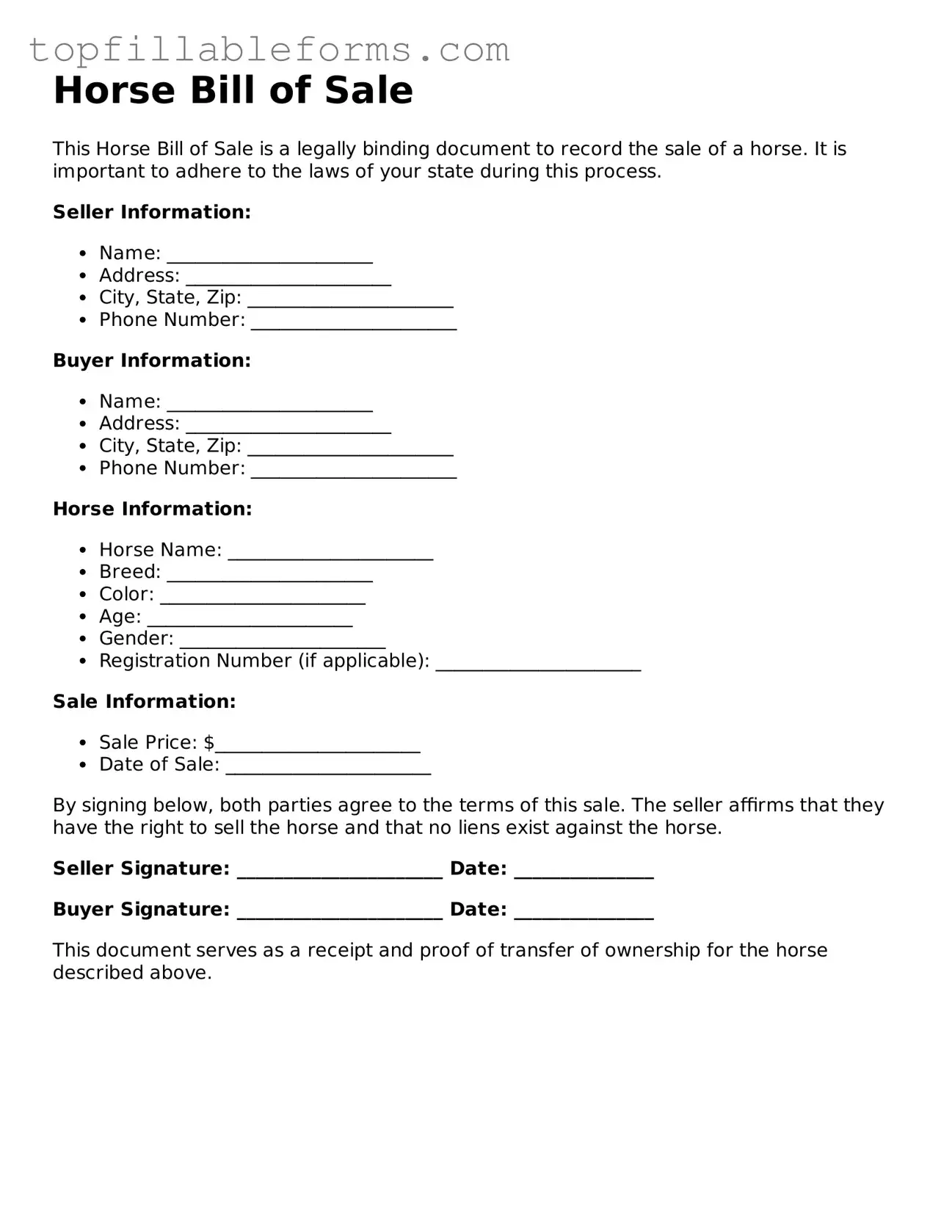Free Horse Bill of Sale Form
The Horse Bill of Sale form is a legal document used to transfer ownership of a horse from one party to another. This essential form outlines the details of the sale, including the horse's description, sale price, and the parties involved. Understanding this document is crucial for both buyers and sellers to ensure a smooth transaction.
Open Horse Bill of Sale Editor Here

Free Horse Bill of Sale Form
Open Horse Bill of Sale Editor Here
Finish the form now and be done
Finish your Horse Bill of Sale online by editing, saving, and downloading fast.
Open Horse Bill of Sale Editor Here
or
▼ PDF File
